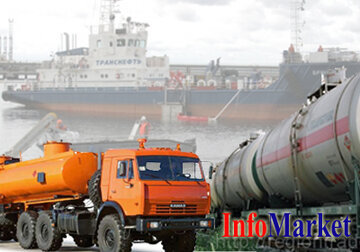
The change in legislation will lead to a reduction in imports of petroleum products and may endanger the supply of fuel to Moldova, - FIA.
In a letter from the Foreign Investors Association (FIA) addressed to the country's parliament, oil product importing companies express their position on the legislative initiative of deputy Alexandru Oleinic to amend the Law on the Oil Products Market. The letter says that the bill, which was adopted by the parliament in the first reading, does not take into account all the decisive factors for the formation of an adequate price for basic oil products and liquefied gas. For example, higher coefficients were not taken into account when purchasing fuel of the EURO 5 category, with a higher level of filtration and costly production. Importers of this fuel will be placed in economically disadvantageous conditions and will have to sell more expensive goods at a reduced price. As a result, it will be more profitable for companies to refrain from selling diesel fuel of the EURO 5 category. The Argus DAF Brest quotes used in the draft law cannot be applied, since no importer in Moldova buys liquefied gas at such prices. Moldovan companies import most of all from Russia, Kazakhstan and Romania, so it is more expedient to use the quotes Argus DAF Ukraine (eastern border of Ukraine) or Argus RBS (Romania, Bulgaria, Serbia). Moreover, from April to September each year, there is a shortage of liquefied gas, therefore, to cover the needs, this type of fuel is purchased from Russia at a fixed price. Accordingly, situations may arise when the purchase price of liquefied gas will be higher than the quotations of Argus DAF Brest. The FIA also notes that the maximum retail prices for basic petroleum products cannot be determined separately for each imported batch, since companies will have to calculate the maximum value every time they import, regardless of their volume (sometimes up to 100 import operations are carried out, therefore it is impossible to implement this requirement in practice). It is noted that it is necessary to clarify the specific commercial margin, since it does not cover the cost of transporting petroleum products; important economic indicators are not taken into account (discounts provided by companies, the cost of stocks of petroleum products in warehouses, the annual increase in salaries and payments to compulsory medical insurance and social insurance funds, an increase in local tax rates, etc). FIA oil importers also ask the legislature to ensure transparency and invite market participants to all public consultations, working group meetings and technical meetings on the project.// 01.04.2021 — InfoMarket







